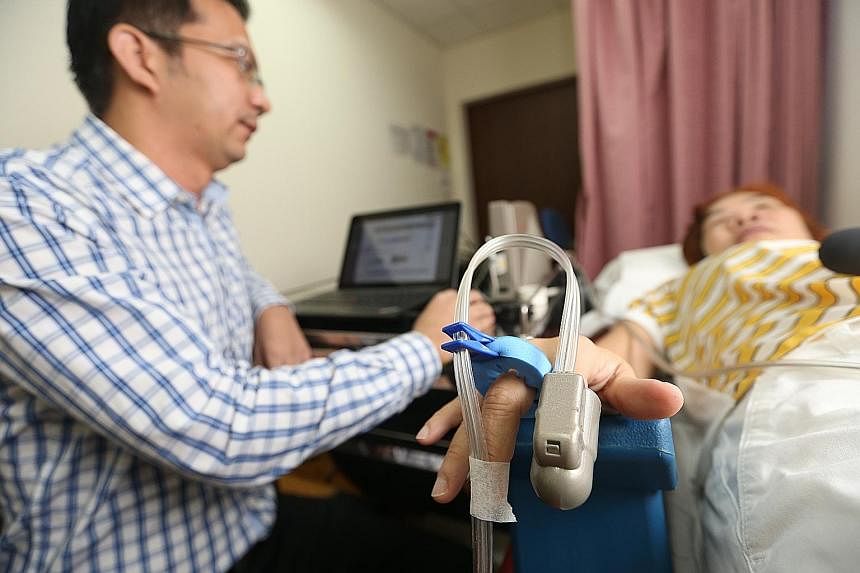IN AN ironic twist, researchers have found that having relatively healthy, elastic blood vessels could mean a person is more likely to develop severe dengue fever.
But the good news is, this also means that doctors may eventually be able to predict which patients will develop severe dengue, by measuring the elasticity of their blood vessels.
These were the findings from a small-scale pilot study led by Tan Tock Seng Hospital that was conducted from August 2011 to September 2012, but published in April this year.
For the study, doctors recruited 110 patients with fever, 74 of whom were later diagnosed with dengue. Of this group, 11 eventually developed severe dengue.
Those with severe dengue were found to have more elastic blood vessels than those with a milder form of the disease.
"The next thing for us to do is to explain why this is so, and then to validate whether our findings are reproducible (on a larger scale)," said Professor Leo Yee Sin, director of the hospital's Institute of Infectious Diseases and Epidemiology.
She believes healthy blood vessels tend to be more elastic, allowing plasma in the blood to leak out more easily. And plasma leakages are in turn a symptom of severe dengue infections. Those who suffer from them often require fluid replacements to make up for the loss.
Singapore had its worst dengue outbreak in 2013, with more than 22,000 cases reported. Since the start of this year, there have been 3,782 cases of infection.
Typically, dengue infections peak from June to August, and the number of new cases declines thereafter as the weather cools.
Prof Leo said 1 per cent to 2 per cent of all infected patients eventually develop severe dengue. But without accurate ways to predict which patients will get severe dengue, it is hard for doctors to know who to prioritise.
Currently, doctors look at whether or not a patient is bleeding, as well as his urea levels and lymphocyte count, to assess whether he is likely to get severe dengue.
"But these areas still require a lot of development," Prof Leo said, adding that these tests are only around 70 per cent accurate.
"If we can predict (who will get severe dengue) earlier, we can focus on the patient."


